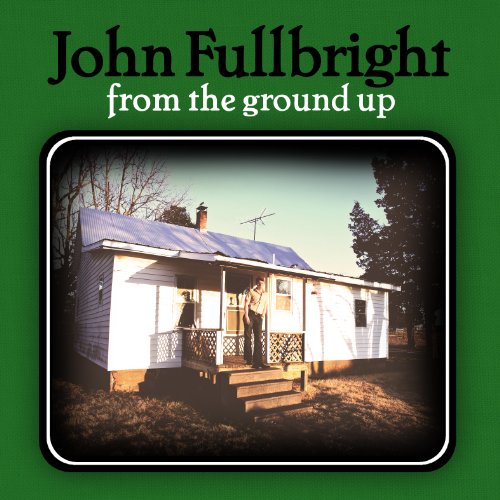Videos by American Songwriter
John Fullbright
From the Ground Up
(Blue Dirt Records/Thirty Tigers)
[Rating: 3.5 stars]
One needn’t be a Fulbright Scholar to recognize that this first album from 23-year-old John Fullbright, an Oklahoma singer-songwriter whose hometown happens to be the same as Woody Guthrie’s (Okemah), marks him as a bright and versatile talent in Americana music. He avoids the pitfall that ensnares so many promising newcomers in this genre – however good their songwriting, they become monotonous because their rugged voices and bluesy country-rock electric-guitar arrangements (or forcefully rhythmic acoustic strumming) never vary.
Fullbright, who began playing the piano at age five and only later learned guitar, avoids that. His keyboard-based and guitar-oriented songs have different personalities, yet share enough traits to be convincing coming from the same artist. Considering he co-produced this record with Wes Sharon, he must have a keen knowledge of and sharp ear for how to keep an album interesting.
On piano ballads, like “I Only Pray At Night” and “Song For a Child,” the melodies are elegantly sweeping yet also intimately hushed. On these, the gravelly soulful, lonesome ache in his plainspoken, slightly drawling voice recalls Leon Russell’s finest work, like “Hummingbird.” Yet give him a guitar and a hot combo (like the three electric guitarists – Andrew Hardin, Terry “Buffalo” Ware and Ryan Engleman – who back up his guitar, organ and harmonica on “Gawd Above”) and his stuff has the lyrically caustic, rockin’ hot vibe of James McMurtry’s work.
And in a song like “Gawd” or “All the Time in the World” or “Jericho,” Fullbright’s voice chomps at the material with a McMurtryesque hard-edged acidity, loosening its bite in time to shout out the chorus with enough passion to make you sing along. (His harmonica solo really lifts “Jericho.”)
Fullbright established himself at Oklahoma City’s Blue Door club and had a chance to play with Joe Ely and Jimmy Webb, two other prominent influences. And he also seems to have listened to the dark cabaret of early Randy Newman – and then tried to top it with a dose of Kurt Weill.
You might at first hear the ghost of Newman’s “Davy the Fat Boy” in his piano-driven arrangement on “Fat Man.” But when Fats Kaplin’s violin solo comes in, the song veers toward something more theatrically deliberate, all the better to underscore its angry description of a capitalist pig.
Yet while his stuff can have a political edge – he is from Guthrie’s hometown, after all – he can also write a feel-good populist toe-tapper. “Moving” opens with a bright blast of harmonica and then proceeds with a jaunty, major-key shuffle that is irresistible as he offers these words of wisdom: “See that everyday we’re breathing is a day we’ve won.”
Fullbright is a young man and he can occasionally drop an awkward line, like “in the winds of your mind” on “Forgotten Flowers” (a song that itself seems a little too flowery in its poetry). But overall this record shows not just promise, but quite a bit of realization of that promise. Many of these songs seem memorable and enduring… and individualistic.














Leave a Reply
Only members can comment. Become a member. Already a member? Log in.